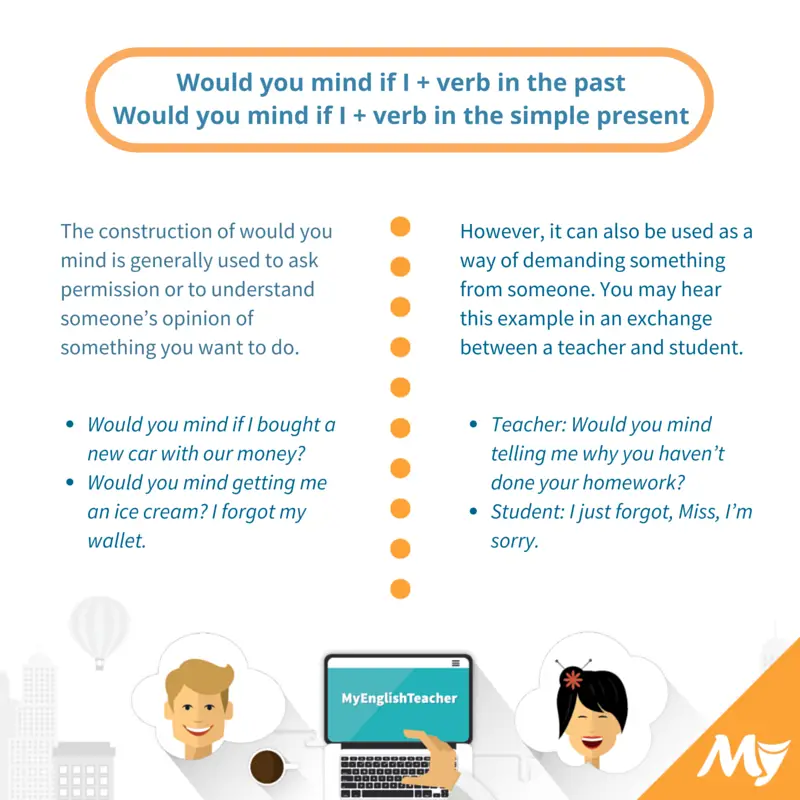
The construction of would you mind is generally used to ask permission or to understand someone’s opinion of something you want to do.
- Would you mind if I bought a new car with our money?
- Would you mind getting me an ice cream? I forgot my wallet.
However, it can also be used as a way of demanding something from someone. You may hear this example in an exchange between a teacher and student.
- Teacher: Would you mind telling me why you haven’t done your homework?
- Student: I just forgot, Miss, I’m sorry.
It’s a useful construction, but be careful when you use it in the demanding sense with someone who isn’t a child as they may be offended.
Recommended for you:
Using Will or Would in a Sentence!
Phone Conversation: Most Commonly Used English Phrases
Will Would Examples
List of Verbs Followed by ING Form or Infinitive
Would you mind if I went to the movies tomorrow night?
Would you mind if I go to the movies tomorrow night?
The first example here is asking for permission to go to the cinema tomorrow night, in the future. This can be a bit confusing as went is the past tense of the verb to be, this is because went is actually in the conditional tense. We use the conditional tense to speculate or discuss something that might happen. So going to the cinema tomorrow night is a possibility. Many conditional forms use the past tenses.
Would you mind if I go to the movies tomorrow night, is less polite but used by many English speakers also. When we use the conditional tenses, it indicates uncertainty whereas the present tense is more definite.

























What is the meaning of this sentence?
I’ve just got off the phone to peter.
Means: I just talk to Peter on the phone. You finished the call just now.
Would you mind if I asked you to close the door? what does this mean? is the action in this scenario already made or not yet?